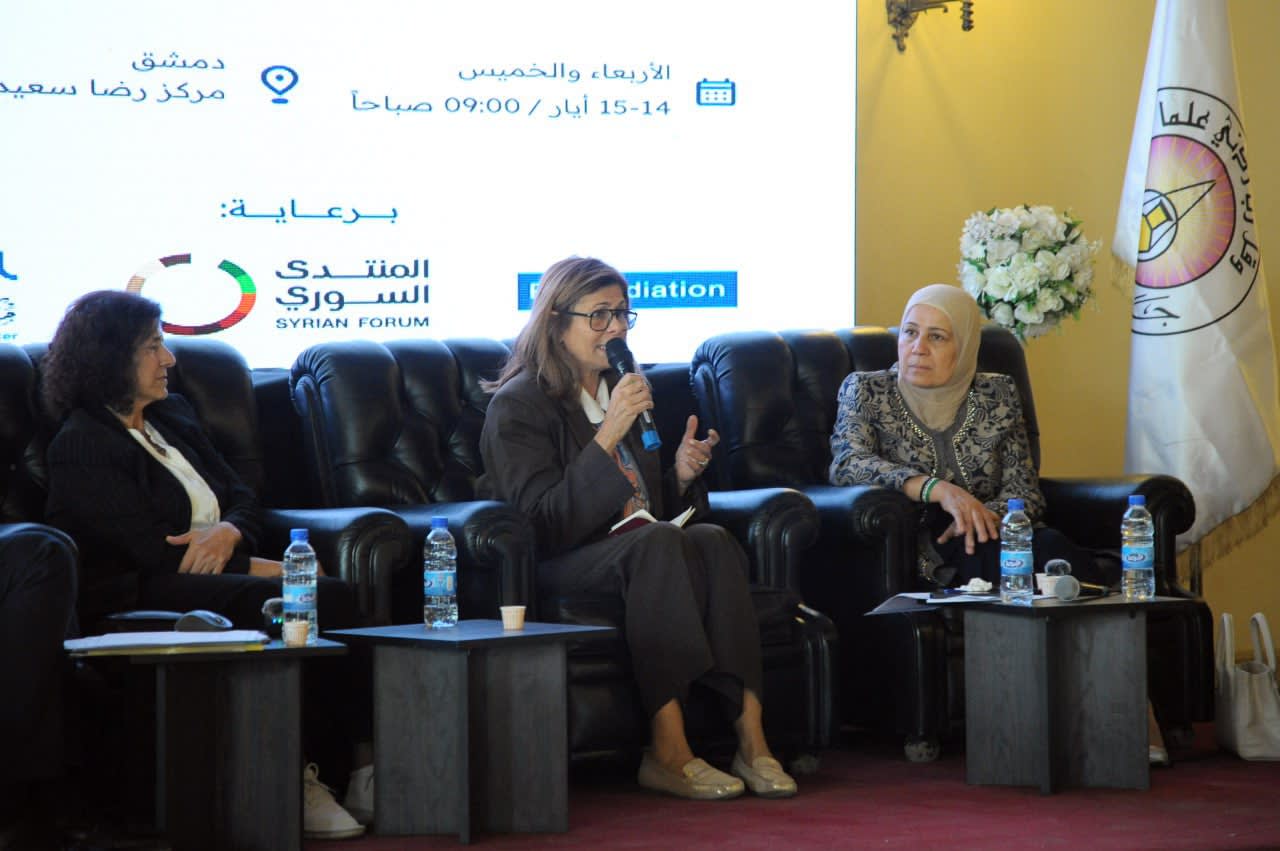With the participation of the Minister of Social Affairs and Labor, Hind Kabawat, the workshop "Transitional Justice in Syria: Prospects and Challenges" continued its activities for the second day at the Rida Sa'id Conference Center.
Participants in the workshop discussed victims' rights, aligning international mechanisms with the national path of transitional justice to develop a roadmap for its implementation in Syria.
In her speech during the workshop, Minister Kabawat spoke about the beginning of an era of dialogue and unrestricted free discussions, emphasizing that transitional justice is a shared national responsibility. The ministry will work on connecting the state with the people, partnering with civil society organizations and local and international entities to achieve social justice, break the cycles of marginalization, poverty, and exclusion, and establish a body for detainees and missing persons.
The minister stressed the importance of fairly treating victims in the transitional justice phase on humanitarian and social grounds, activating social policies that involve consultations and discussions with war victims and affected individuals to ensure their rights, uphold their dignity, and allow their voices to contribute to nation-building. Recognizing their losses is a moral duty, and public apologies should be offered to them by those responsible for their suffering.
Kabawat called for the implementation of a national initiative to establish a registry for missing persons, provide psychological support to their families, and highlighted key areas to focus on during the transitional justice phase, including orphans, beggars, war-affected individuals, supporting families of missing persons, ensuring shelter, education, and securing a future for victims.
During his participation in the workshop sessions, the Director General of the Syrian Civil Defense, Munir Mustafa, emphasized the need to achieve transitional justice and accountability, document and archive stories, tragedies, and systematic violations in Syria, enact laws to facilitate data collection and archiving, work on uncovering mass graves and facts related to missing persons, providing information to their families, and conducting ongoing dialogues and sessions with victims' families.

